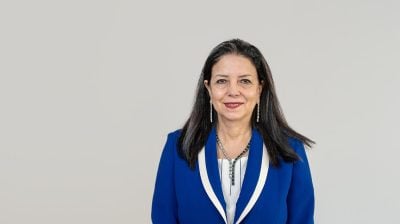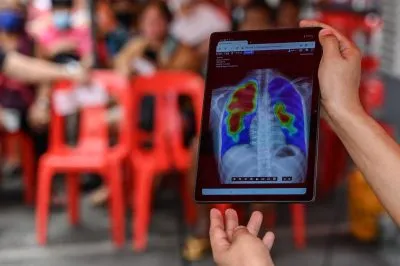The changes that Africa is now going through do not cease to amaze. It seems only yesterday when Africa was at the bottom of the class in terms of technological innovation, but things have changed and the continent is now becoming a global trendsetter in the innovative application of technology.
The most promising fields, according to experts, will be those based on digital technology, which include e-learning, m-learning, e-health and m-health, e-commerce and m-commerce, agribusiness tech and a host of others.
While educational infrastructure is still lacking across the continent, some interesting e-learning products are coming to the fore, including educational tablets, which are seen as a tool for social development.
The first African tactile tablet, the Way-C, developed by Verona Mankou from Congo, came out in September 2011, and Africa’s first medical tablet, the Cardiopad, was designed and assembled in 2013 by Cameroonian Arthur Zang.
Ivorian IT expert Thierry N’Doufou has also recently developed the Qelasy tablet, which is comes in three sub-brands respectively targeting children, adolescents and adults in the education system. In addition to being compatible with about 1,000 apps on Android 4.2, this tablet is linked to a website where teachers can submit all types of content and information for students and their families.
The Chinese startup MySimax, whose main objective is to provide high-quality tablets to African students in the higher education system, has announced plans to expand its services to key sectors such as health and public administration. The idea is to develop educational applications for people working in those fields and the ones benefiting from their services. J.X. Paulin, co-founder of MySimax, said “In order to progress, a country needs two things: educated people and healthy people.”
Those 3G compatible tablets are equipped with a fast processor. They work on Android 4.2 and come with a bluetooth keyboard, a mouse and a stylus pen in order to ensure a convenient and straightforward use for the large number of tech novices in Africa. While developing the educational platform, engineers followed the same logic and focused on creating an intuitive tactile environment that wouldn’t require the use of softwares likely to slow down the product.
While China participates indirectly in the process of African digitization and is one of the leaders of the digital market in East Africa, it also faces criticism regarding the quality of its products, and the digital tablets market is no exception, especially because of the proliferation of low-cost devices equipped with unsuitable processors and low-quality batteries.
According to Thibaud André, an employee at MySimax, “China has been producing increasingly higher value-added products for decades. It is no longer the textile workshop of the world. Chinese brands such as Huawei and Lenovo are competing with market leaders and snatch market shares from Apple and Samsung. The key is to stop underspending on production in order to upgrade to leading brands.”
MySimax has already established a partnership with two Gabonese private schools in order to offer a scholarship called “China Journey” to the top students of their class. In addition to getting one semester in China with all costs covered, every beneficiary will receive the equivalent of 13,000 yuan ($2,080).
According to an agreement with the Sylvia Bongo Ondimba Foundation for the Family – a foundation headed by Gabon’s first lady – every time 100 tablets are sold in the private sector, five will go to students who can’t afford one. As modest as it seems, this contribution is a first step toward the ultimate goal of those who created the educational tablets: enabling everyone to learn in tune with the times.
* A full version of the original article can be found online at: www.chinafrica.cn
Want to continue reading? Subscribe today.
You've read all your free articles for this month! Subscribe now to enjoy full access to our content.
Digital Monthly
£8.00 / month
Receive full unlimited access to our articles, opinions, podcasts and more.
Digital Yearly
£70.00 / year
Our best value offer - save £26 and gain access to all of our digital content for an entire year!
 Sign in with Google
Sign in with Google 


